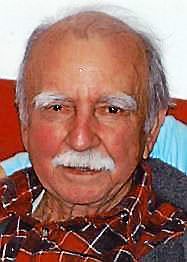Ronald Read was a gas station attendant in Vermont who retired after 25 years and then worked as a janitor for J.C. Penney for 17 more years. When he died last year at the age of 92, he left most of his $8 million estate to the local library and hospital. His step son, whose mother died in 1970 after a brief 10 year marriage to Mr. Read, was unaware of his wealth. He was renowned for his frugality, which included not paying for parking, wearing clothes held together by safety pins, and gathering free fire wood for his stove. No one suspected he had any wealth, much less $8 million.
Several quick points:
1. Assets worth more than $5.43 million are subject to federal estate tax, but bequests to charity are not taxable. Mr. Read’s estate will not be subject to federal estate tax.
2. Mr. Read’s estate will not be subject to Vermont estate tax either because Vermont exempts $2.75 million from estate taxation.
3. Kudos to his step-son who continued to visit his step-father for 45 years after his mom died after only 10 years of marriage to Mr. Read.
4. Perhaps we could all accumulate a significant net worth like Mr. Read if we eschewed cell phone and data plans, cable TV packages, and daily Starbucks runs.

